Look, we’re all a bit disillusioned after the ending of Game of Thrones. Like a bottle rocket, a lot of buildup led to a whole lot of nothing in the end. We could all use a palette cleanser. If you’re anything like me (which I assume you are if you’re reading this), that means a different, better show I can overanalyze to my heart’s content. Well, I’m here to tell you why you should join me in my latest obsession: Netflix’s Dark.
As of a couple months ago, two of a projected three seasons for Dark have been released and the third is in filming, to be released next year. So now’s the time to jump on the band wagon! Believe me, this German drama has everything:
Character arcs!
The showrunners of Game of Thrones did many of their characters dirty (RIP DANY), but the creators and writers of Dark certainly don’t. On a purely character level, Dark is some of the most compelling drama I’ve ever seen.
While the cast isn’t all that large, the writing makes the most of it. Rather than a bewildering array of new faces, Dark takes the time to dig deep into the small cast. This is real heart in conflict stuff, especially when you add in time travel. As if following one character’s arc through a season weren’t enough, you get character arcs across timelines. Characters come into conflict with past or future versions of themselves, which add a whole new meaning to the idea of fighting yourself. It’s deliciously complex.
If you’re a fan of the morally ambiguous writing that characterizes A Song of Ice and Fire and earlier seasons of GoT, Dark has you covered. You want heroes with questionable motives? Conflicts where you’re not entirely certain who is right or wrong? Check and check.
Like characters you might hate upon first impression but come to have sympathy for without it feeling forced? Dark has those, too. The show’s ability to change my perspective on specific characters and have it feel earned impressed the heck out of me after S1. I’m even more impressed after season 2. There are two characters—Ulrich and Noah—whose arcs unfold in the most fascinating and unexpected ways. It’s truly a wonder to behold the dexterity with which the writers force me to confront my own initial prejudices and change how I viewed these characters. And I can’t wait to see who they challenge me on next. I’m thinking Adam.
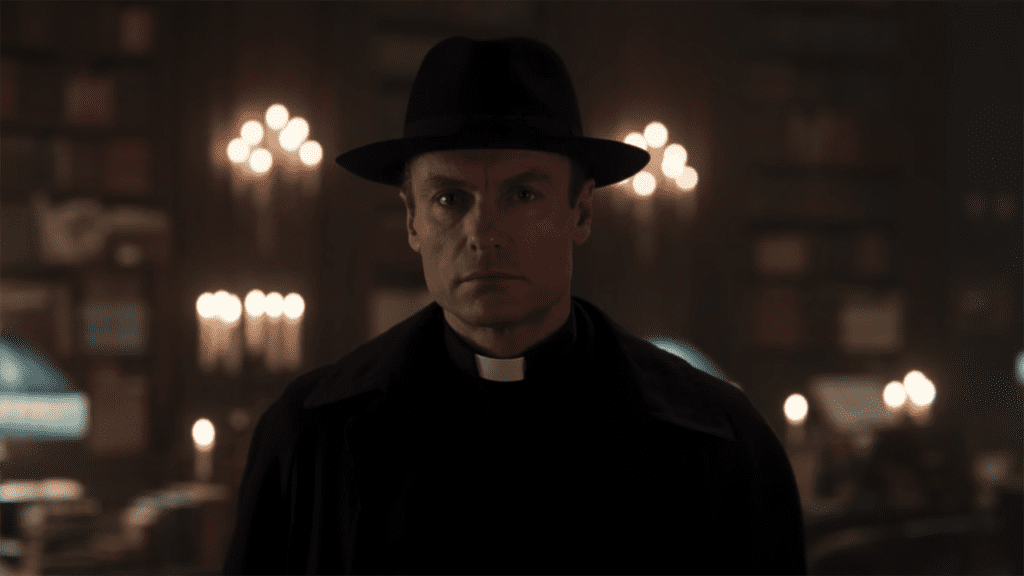
Complicated Family Dynamics!
In case you’re not familiar with the premise, Dark is a science fiction show that follows the intertwined lives of four families within the small town of Winden, Germany. And when I say complicated, I mean it. It’s quite knotty (and naughty). There’s a reason why one of the characters creates a string wall in-universe to try and keep all the connections straight. Again, with time travel involved, you can imagine the kinds of paradoxes that might spring up. No spoilers here, but let’s just say, the Doppler family tree is a mess.
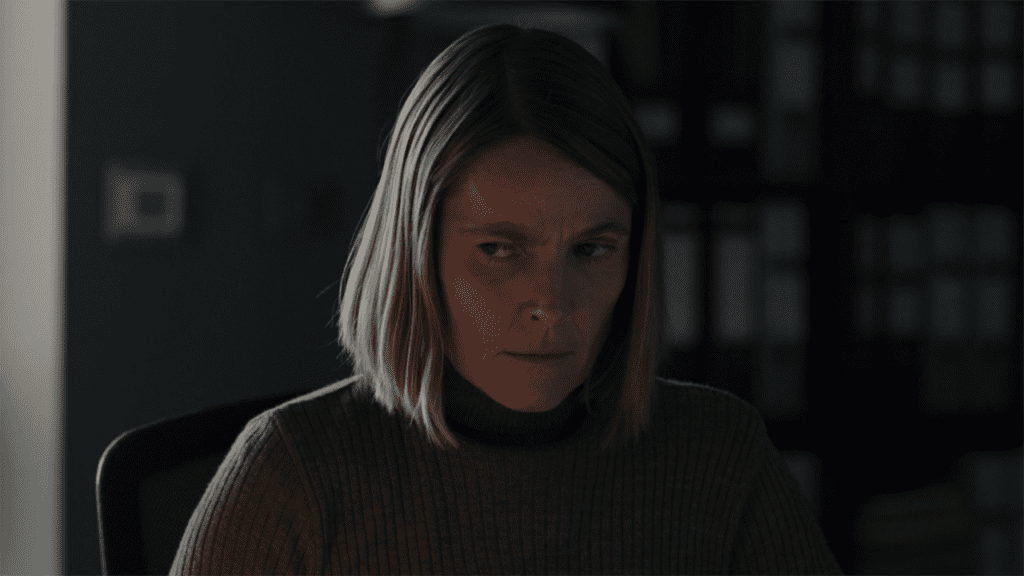
In keeping with the focus on character arcs, Dark takes the idea of a tragic family flaw up to eleven. Not even the Martells would know what to do with all these shared intergenerational family flaws. In the first season, for example, one episode highlights the similarities between Marta Nielson and her mother Katharina and another compares her to her father Ulrich. Ulrich, in turn, parallels his own two parents in various ways, which creates space for comparing Marta with two generations of Nielsons.
But the show doesn’t stop there, oh no. Dark takes pains to tie characters to each other in truly unique ways outside of immediate familial dynamics. Other episodes might put Marta and Jonas in parallel with each other, another, Marta and Bartosz. The ways in which the characters exist alongside each other both in the writing and visually with the cinematography (which is stunning), invites the audience to compare and contrast everyone with each other in unique ways. Rather than one or two characters being foils for each other, everyone is a foil for everyone else. It’s kind of like ASOIAF that way: a complex web of character comparisons that rewards deep thought and analysis. And talking with a friend.
Dark’s focus on these four families and their individual and group relationship to each other might sound like a narrow focus. But it’s that laserlike focus that makes the story so human despite being fantastical. At its heart, Dark is about the relationship between generations, tragic similarities, desire and trauma and the ways we hurt and love each other. And about how all of that shapes our personal and our family’s past, present, and future.
Speaking of which…
Themes!
Unlike certain writers, the married team behind Dark, Jantje Friese and Baran bo Odar, understand that themes are not just for eighth grade book reports. As is fitting for a show about time travel, Dark naturally explores fate, free will, and determinism. Can you change the past? If so, what? Can you change the future or is even that predetermined by our past choices?
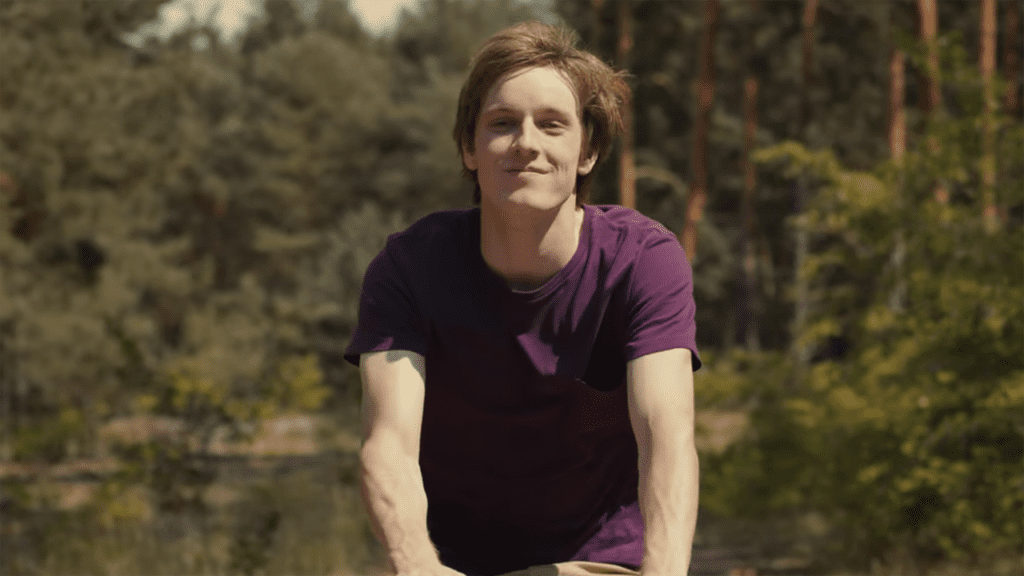
But these big questions really exist at the level of the human heart in conflict. What generates the question of changing the past is love, and the pain, regret, and desire that comes with it. Can someone change their heart or are we constantly trapped by our own desires? Dark also explores the darker side of love: the tragedy and horror of obsession and how it wreaks havoc on ourselves and our loved ones. But it also gives us the more noble side of humanity, weaving in themes of self-sacrifice, the cycle of life and death, and what one will do to protect one’s family.
To enrich its themes, Dark pulls from elements of Western cultural sources like Shakespeare and mythology. The figure of Ariadne from Greek mythology features heavily in the first season across multiple character arcs, for example, and the second season draws upon Lady Macbeth for one of the main characters. Dark also does some pretty cool stuff with pop culture and music. Bet you never thought a sci-fi show would use heavy metal band Kreator as an element of its symbolism, but here we are.
Speaking of themes…
Time Travel!
Disappointed with Endgame’s use of time travel? Try Dark instead!
Look, I’m not usually the biggest fan of time travel unless it doesn’t really take itself very seriously and is mostly utterly ridiculous (like Russel T. Davies era Doctor Who). Most of the time, time travel seems to exist for the aesthetic or because it’s just another sci-fi trope, rather than having a deeper meaning. Dark’s use of time travel actually has thematic significance. It’s not just a way to create messed up family trees and make your brain feel like it’s going to explode with some of the paradoxes. (Though it does do both of those things.) It also means something.
The idea of trying to change the past or future is, at one level, a lesson in mental health. In Dark, time travel partly exists as an elaborate metaphor for the human psyche and its relationship to Time. Not just time in general, but time as a means by which we relate to ourselves and our actions. Do we obsess over choices and try to change them? Do we accept that they can’t be changed? What impact does each perspective have on individuals and the whole? When we look at our own future, do we maintain the status quo, accepting our personal fate as inevitable, or do we try to change what we become and the choices we eventually make? Is that even possible?
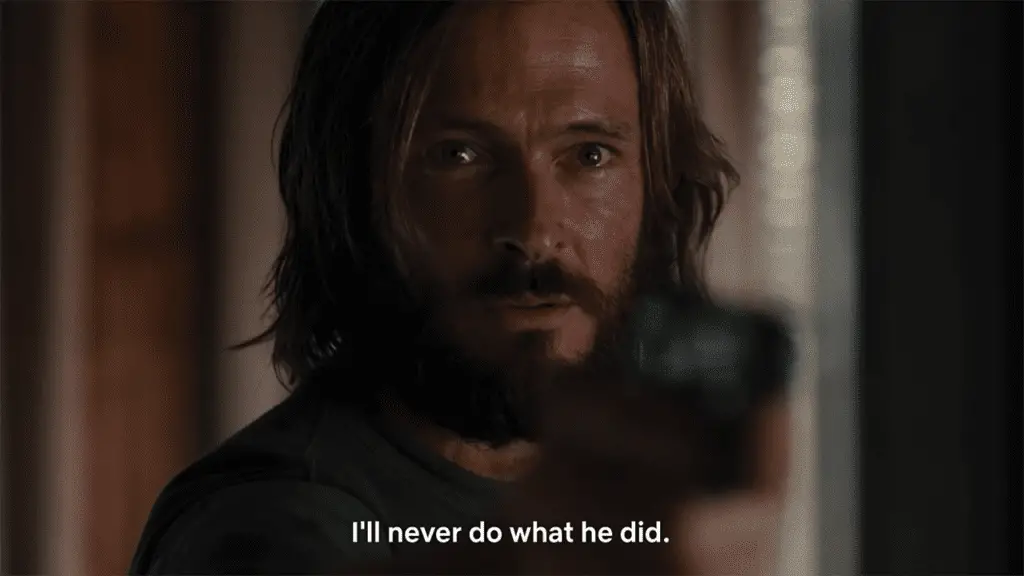
Time travel also has consequences. Consequences that make sense, or at least as much sense as time travel can. Like I said, I’m not one for time travel most of the time. But if there’s any sci fi film or show that I think can explore time travel in a way that’s as close to coherent and not-hand-wavy as possible, it’s Dark.
On an intergenerational level, time travel in Dark allows characters from different time periods to interact with each other. This inevitably leads to culture and values clashes not possible without it. It’s a powerful way to explore intergenerational change and conflict. It also places characters alongside each other who would normally not be able to interact, which can be quite moving. I can think of a couple scenes in both seasons that made me cry with their poignancy. Even upon a second or third viewing, I still get choked up.
Which leads me to…
Rewatchability!
I hardly ever rewatch anything. Usually once I’ve seen something, I’m satisfied and don’t feel the need to revisit it. So when I do find myself coming back again and again, and finding something new I hadn’t noticed, it stands out. Dark is that kind of show for me. Season 2 came out only a couple months ago and I’ve already rewatched for a second time and am gearing up for a third rewatch of both seasons. And that won’t be my last rewatch. This might have a little bit to do with my friend David and I starting a YouTube podcast about Dark. Nevertheless! It’s still a show you can come back to over and over again and still find new things. Which, incidentally, is why our first video is “10 Things You May Have Missed in Dark Season 2.”
With the amount of background symbolism, thematic complexity, and sheer character work that goes on in Dark, you kind of have to watch it more than once. And that’s not even getting into if you want to try and untangle some of the time paradoxes and figure out who knows what or talked to whom and when…
Dark is a thinking person’s show. Honestly, you can’t casually watch it in the background, even if you do watch it dubbed instead of with subtitles. You really have to pay attention. On the flip-side, it rewards close attention. It’s highly bingeable. In fact, I recommend watching a whole season, if not both seasons, in as quick succession as possible. You won’t regret it.
Honorable Mention
The casting: Hot damn does this team know their stuff. I have more than once wondered “is that just the younger actor in age makeup?” when I meet an older version of a character and every single time I’m wrong. The casting directors are that good.
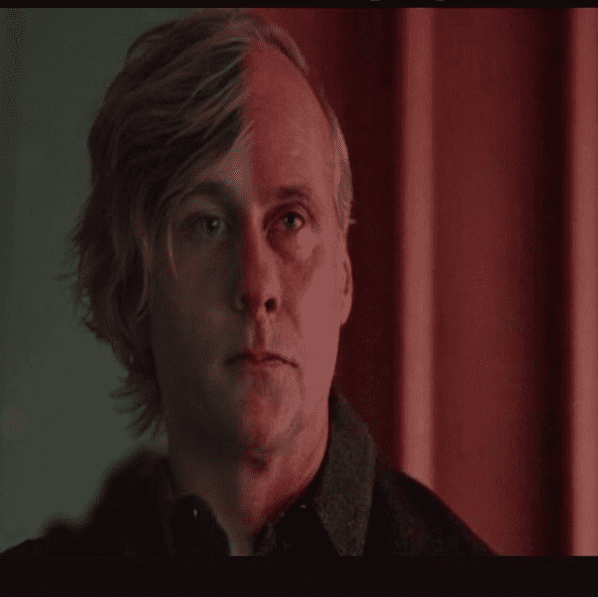
The visuals: Dark could teach many, many TV shows about framing intimate shots of characters’ faces, the importance of lighting, having dark settings while still being able to see what you need to, complex visual symbolism, and the right way to do a montage, complete with character parallels and visual metaphors.
The music: Composer Ben Frost deserves all the awards. Seriously. Noah’s themes is particularly chilling, and the soundscape of the show overall is just…phenomenal. You have to hear it to truly grasp just how powerful it is, and how well it works with the visuals.
The writing: This is hands down one of the tightest, most well put together TV shows I’ve ever seen. There’s absolutely no fluff and nothing on screen is wasted space, visually or in dialogue. The husband/wife team who wrote the show wrote all three seasons at once before they started filming the first season, and it shows.
So what are you waiting for? Go watch Dark!
And then go visit Sic Podcast Creatus Est on Twitter and on YouTube for all your Dark analysis needs! Trust me, you’ll have needs.

